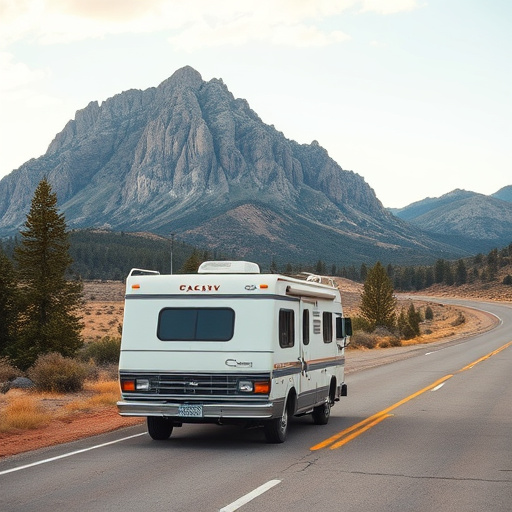For RVing for beginners, understanding RV insurance, particularly liability coverage, is vital before hitting the road. This protects against accidents, theft, and damage to both the RV and personal belongings, offering peace of mind during scenic adventures. Tailored RV insurance policies address unique risks like towing, off-road use, and mechanical failures not covered by standard car insurance. Beginners should evaluate their RVing style, vehicle value, and budget to choose comprehensive yet affordable coverage, potentially saving money by bundling auto and RV insurance and maintaining a clean driving record.
New to RVing? Navigating insurance options can seem daunting, but understanding your liability coverage is crucial. This guide breaks down everything first-time RV owners need to know about insuring their investment. From understanding RV insurance basics to exploring types of liability coverage and tips for lowering costs, we empower you with the knowledge to make informed decisions on protecting your RV and enjoying your adventures worry-free.
- Understanding RV Insurance Basics for Beginners
- Types of RV Liability Coverage Options
- What is Included in First-Time Owner Liability Insurance?
- Key Differences Between RV and Car Insurance Policies
- How to Choose the Right Liability Coverage for Your RV
- Top Tips for Lowering Your RV Insurance Costs as a New Owner
Understanding RV Insurance Basics for Beginners
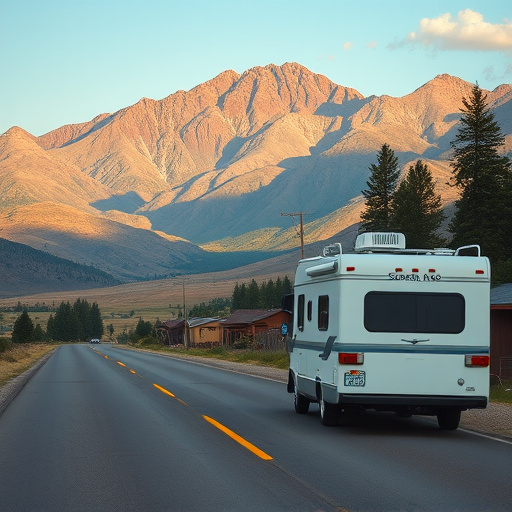
For those new to RVing, understanding insurance options can seem overwhelming. However, it’s a crucial step in ensuring a safe and enjoyable journey. RV insurance is designed to protect owners from various risks associated with their recreational vehicles. Basic coverage typically includes liability protection, which shields you from financial responsibility if your RV causes property damage or personal injury to others during a trip. This is especially important for first-time RV owners who are new to navigating roads and handling these large vehicles.
When exploring RV insurance options as a beginner, consider the different types of coverage available. Comprehensive and collision coverage protect against damages to your RV from accidents or natural events. Personal effects coverage ensures that your belongings inside the RV are safeguarded in case of theft or damage. Understanding these basics will empower first-time RV owners to make informed decisions about their insurance needs as they venture into the world of RVing.
Types of RV Liability Coverage Options
For RVing for beginners, understanding liability coverage options is crucial before hitting the road. There are several types of RV liability coverage designed to protect first-time owners from unforeseen circumstances and potential accidents. Comprehensive insurance plays a vital role in shielding you against damage or theft of your recreational vehicle, while personal liability coverage steps in when you’re held accountable for property damage or injuries to others during your travels.
Liability coverage options extend further, offering protection against medical expenses for those injured in an accident involving your RV. This is particularly important given the bustling nature of RVing, where navigating through scenic landscapes can sometimes lead to unexpected challenges. Choosing the right liability coverage ensures that you’re prepared for any incidents and can enjoy your RV adventures with peace of mind.
What is Included in First-Time Owner Liability Insurance?
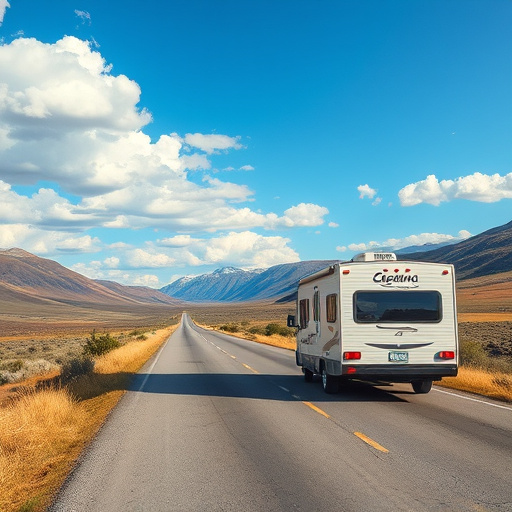
For first-time RV owners, understanding liability insurance is crucial when embarking on their new adventures in RVing for beginners. This type of insurance covers a range of potential risks and damages that can arise during your travels. Typically, it includes protection against claims or lawsuits for bodily injury or property damage that you may cause to others while driving or parking your recreational vehicle (RV).
First-time owner liability insurance also extends to coverage for medical expenses if you are found liable for injuries sustained by others on your RV’s premises. This can include situations like accidents at campgrounds, rest stops, or even while backing into a site. Moreover, it may offer protection against property damage claims, ensuring that your personal belongings and the RV itself are safeguarded in case of an incident caused by negligence.
Key Differences Between RV and Car Insurance Policies

When it comes to protecting your investment and navigating the complexities of RVing for Beginners, understanding the key differences between RV and car insurance policies is essential. While both insure a motor vehicle, their coverage profiles are significantly distinct due to the unique nature of Recreational Vehicles (RVs). RVs blend the functions of multiple vehicles—from cars and trucks to trailers and campervans—which necessitates tailored insurance to address specific risks like towing capabilities, living quarters, and potential off-road usage.
Car insurance policies typically cover liability, collision, comprehensive, and medical expenses for a standard passenger vehicle. In contrast, RV insurance options often include specialized coverage such as full-time living expenses, personal belongings while traveling, and specific perils related to RVs like water damage from leaks or flooding. Additionally, many RVing for Beginners benefits from policies that account for the increased risk of mechanical failures, natural disasters, and theft common in the RV community.
How to Choose the Right Liability Coverage for Your RV
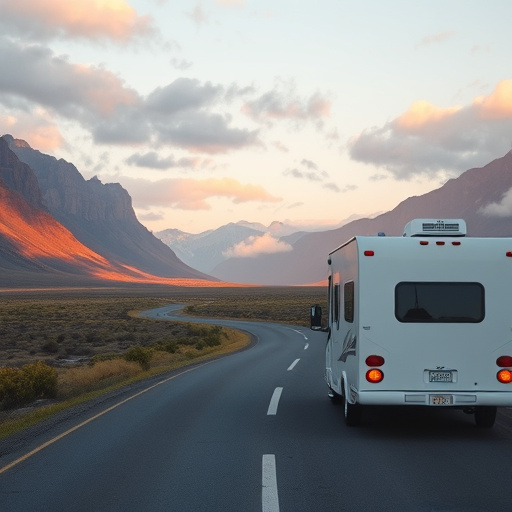
When it comes to insuring your new recreational vehicle (RV), understanding liability coverage is key, especially for first-time RV owners. The right liability insurance protects you from potential financial risks while RVing and can be tailored to suit various needs and budgets. To choose the best option, start by evaluating the type of RVing you plan to do. Are you primarily camping at established parks or exploring remote locations? Your risk profile will differ based on these activities.
Next, consider the value of your RV and its contents. Ensure your liability coverage matches the financial protection you want for your investment. Compare different policies and their exclusions, focusing on the limits of coverage and deductibles. Remember, RVing for beginners often requires a comprehensive understanding of insurance terms to make an informed decision that keeps them safe on the road.
Top Tips for Lowering Your RV Insurance Costs as a New Owner
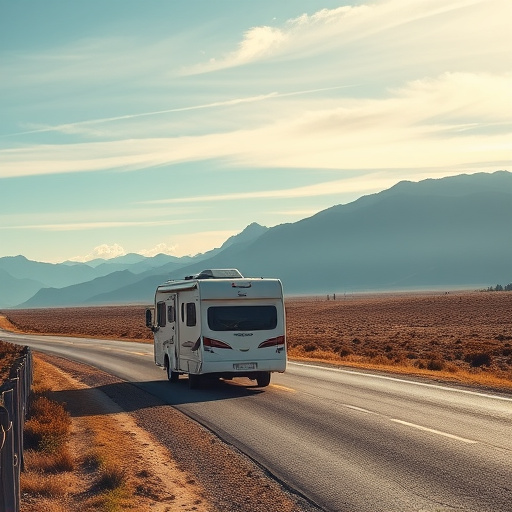
As a first-time RV owner, managing your budget is essential, especially when it comes to insurance costs. Here are some top tips to help you lower your RV insurance expenses and navigate the world of RVing for beginners on a smarter financial path.
First, shop around for quotes from multiple insurers. RV insurance options vary widely, so comparing policies will give you a better understanding of what’s available and help you find the best coverage at an affordable price. Consider factors like your RV’s age, make, and model, as well as your driving history and the amount of coverage you need. Bundling your auto and RV insurance policies can often result in significant savings, so explore this option with your current or a new insurer. Additionally, maintaining a clean driving record and avoiding traffic violations can positively impact your premiums over time.
For RVing beginners, understanding your insurance options is a crucial step in enjoying your new adventure without financial worries. By considering the various liability coverage types and their inclusions, as outlined in this article, you can make informed decisions to protect yourself from potential risks associated with RV ownership. Remember, the right insurance policy ensures peace of mind, allowing you to focus on exploring new horizons.
